Smooth Talk (1985)
“I know my Connie; I’ve been watching you.”
|
Synopsis: |
|
Genres, Themes, Actors, and Directors:
Review: Meanwhile, we don’t get to know much about Dern’s quirky father (Levon Helm) or dour older sister (Berridge) either, instead following Dern as she spends time at the mall and a drive-in with her two besties (Margaret Welsh and Sara Inglis): … and is clearly very interested in presenting herself as a sexually attractive young woman (albeit one who puts limits on how far she’ll go). The inclusion of Williams’ character (who we only see in brief snippets throughout the first hour) was actually at the core of Oates’s original story, which itself was inspired by serial killer Charles Schmid. To that end, the final third of the film is its most creepy by far — but also its most puzzling (and ultimately unsatisfying), given that we’re not explicitly told whether Treat’s character is any kind of killer (or not), and too much is left to the imagination. What is clear is that Dern is somewhat intrigued by (and attracted to) this handsome stranger, while also recognizing the risks he poses to her if she agrees to his forceful demands. While I admire much about this well-filmed coming-of-age tale (primarily Dern’s fearless, spot-on performance), it’s not must-see viewing except for fans of Dern’s or Williams’ work. Notable Performances, Qualities, and Moments: Must See? Links: |
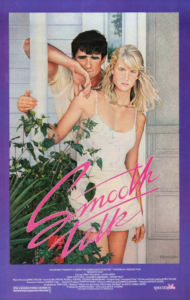
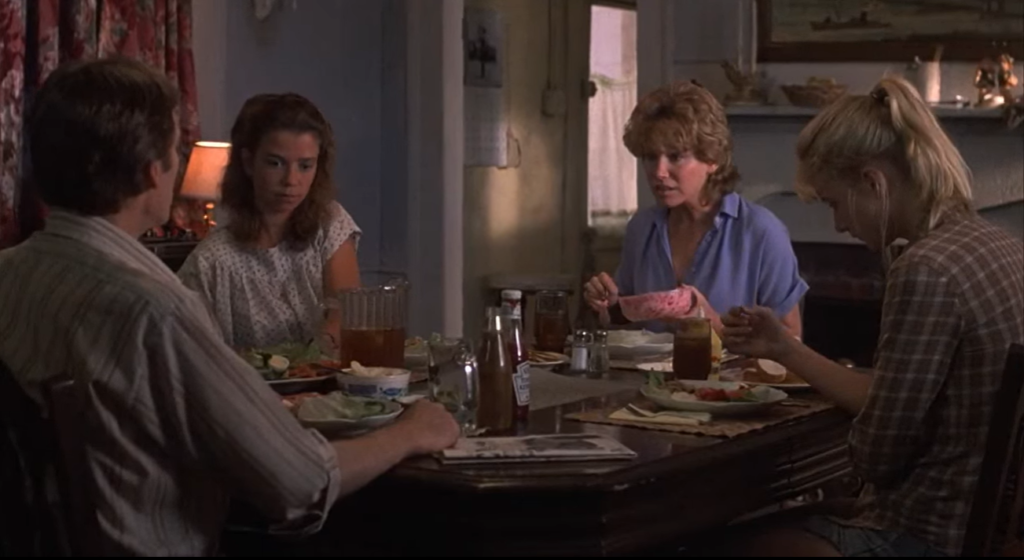
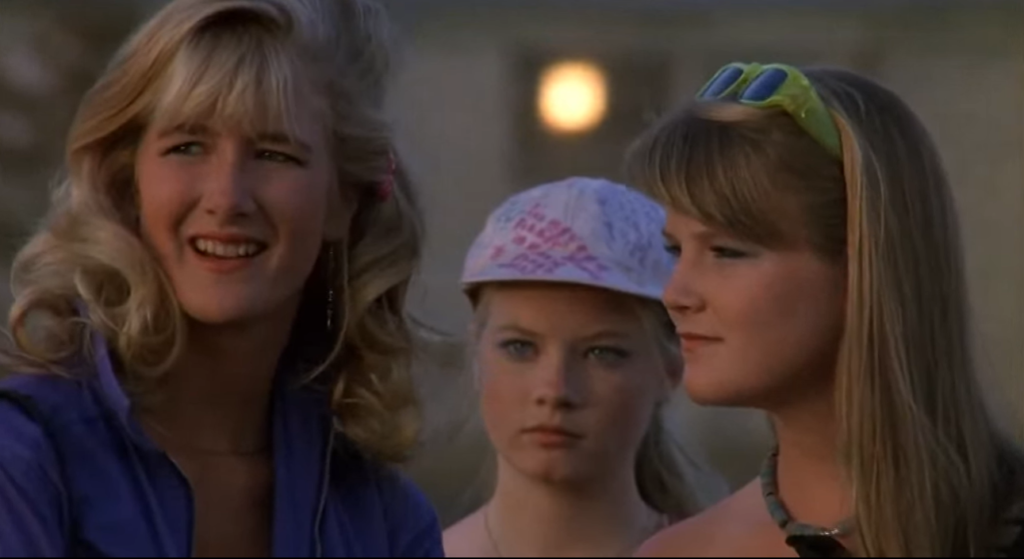
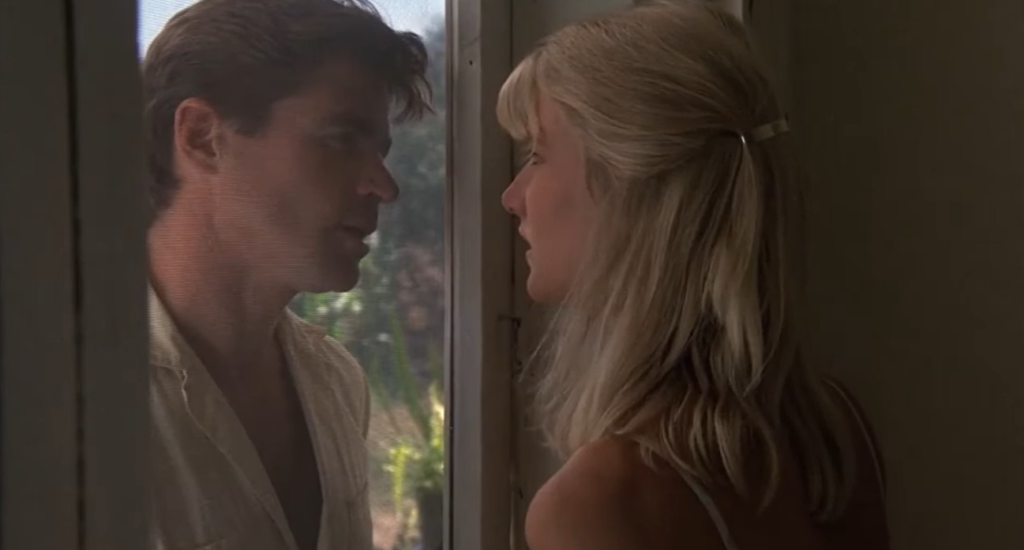
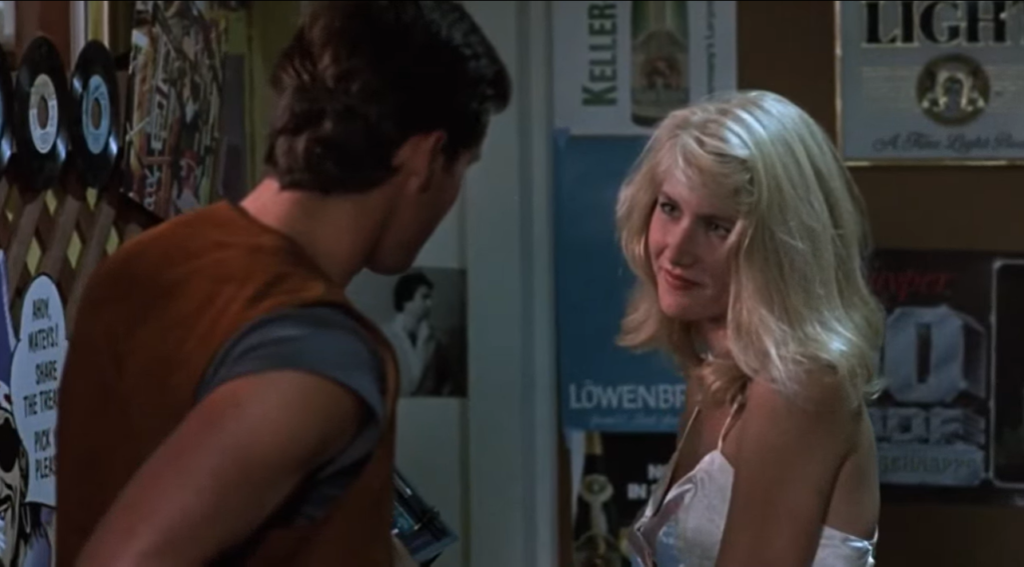
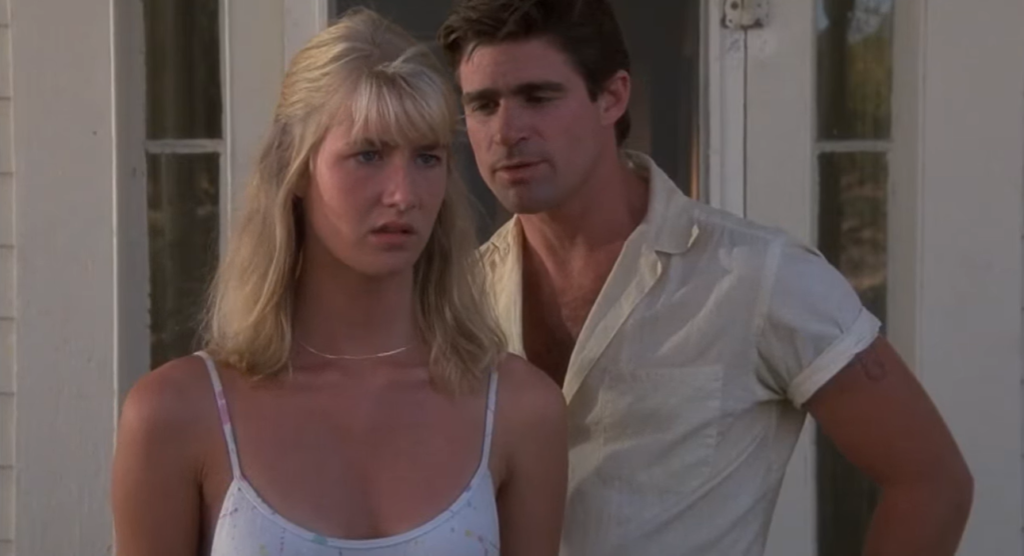
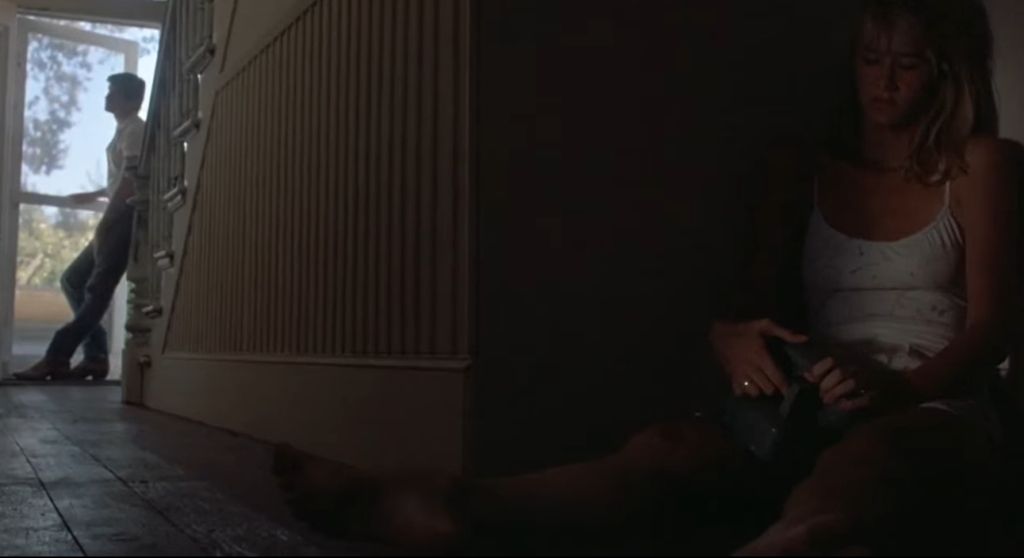
One thought on “Smooth Talk (1985)”
First viewing (8/30/20). Not must-see.
In the last scene of this meandering, disappointing movie, Dern’s character says one thing – suggesting what *may* have happened in her imagination – which could have been a springboard for the entire film. At least it would have given the film an angle it desperately needed.
Without such an element, we’re left with: 1) an opening 30 minutes which is nothing more than aimlessly hanging out with three uninteresting immature teens (in what way is this compelling?) and 2) a segue into a schizophrenically handled mother / daughter relationship which leaves Dern and Place with almost nothing to play believably.
Then we get the film’s final third – which could have been much more gripping had it incorporated something (anything!) that would give the film a reason for being. Without that, the happy ending (which would otherwise be fine) is not one that’s earned.
A real missed opportunity here.